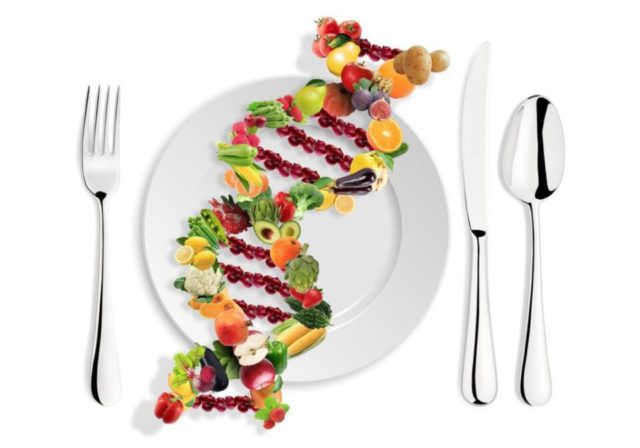Finely etched into the fabric of women’s lives are the details of our difference, and we do have some unique needs when it comes to certain micronutrients, which shift in focus during our changing life stages.
NO MATTER your gender, you can’t go wrong with eating a variety of healthy foods including lots of fresh vegetables and fruit; legumes and pulses, nuts and seeds; lean proteins and dairy; healthy fats and whole grains.
Inevitably though, finely etched into the fabric of women’s lives are the details of our difference, and we do have some unique needs when it comes to certain micronutrients, which shift in focus during our changing life stages.
Maryke Bronkhorst, a registered dietitian and spokesperson for the Association for Dietetics in South Africa (ADSA) points out that our reproductive years represent the major portion of our lives. “Women and girls of reproductive age, who are not pregnant or breastfeeding, should strive for optimal nutritional status for their own health and for the health of any future children,” Bronkhorst says.
“Good nutrition during the reproductive years helps set the foundation for health in years to come. It helps ensure proper growth during adolescence, adequate nutrient stores for a healthy pregnancy, and a good nutritional status to help maintain bone health during the menopausal and postmenopausal time of life.
“Many women’s health issues are related to the hormonal shifts in oestrogen and progesterone associated with the menstrual cycle. These include a higher risk of anaemia, weakened bones, and osteoporosis. Malnutrition, as either under- or over-nutrition, can also have adverse effects on women’s health and fertility.”
According to Bronkhorst, below are some important nutrients for women to take note of during different life stages:
Your reproductive years – from the onset of menstruation to the onset of menopause:
Iron plays a vital role in ensuring healthy blood cells, and menstruation can take its toll on us and lead to anaemia. Women need a good intake of iron-rich foods which include lean red meat, poultry and pork. Other good sources of iron include fish, eggs, kale, spinach, beans, and lentils. Iron is more easily absorbed by your body when eaten with vitamin C-rich foods
Folate (or folic acid) is involved in healthy red blood cell formation and DNA synthesis. Adequate intake is required prior to conception, not just during pregnancy, in order to reduce the risk of birth defects. Food sources of folate include dark green leafy vegetables, lentils, citrus fruits, beans and peas
Calcium and Vitamin D are important for healthy bones and teeth, especially prior to menopause, to reduce the risk of osteoporosis. Calcium also helps to regulate the heart’s rhythm and ensure your nervous system functions properly. Food sources of calcium include milk, yoghurt and cheese and sardines. Vitamin D can be synthesised in the skin when you’re exposed to direct sunlight. Food sources include fatty fish such as salmon, as well as eggs
Vitamin B12 supports healthy brain and nervous system functions. Vitamin B12 comes from animal products only, therefore vegans will need to use foods fortified with vitamin B12 or supplementation. Sources include lean meat, poultry, fish, eggs, and dairy products
Menopause and post-menopause – the later life stages
Calcium – Although some bone loss is inevitable with age, it is still important that post-menopausal women continue to preserve their bone health. Food sources of calcium include milk, yoghurt and cheese, sardines, and calcium-fortified foods including plant-based milk alternatives, juices and cereals.
Vitamin D – The skin becomes less efficient at converting sunlight to vitamin D as we age, therefore older women may need more vitamin D in the form of supplements. Vitamin D food sources include fatty fish, such as salmon, eggs and fortified foods and beverages, such as plant-based milk alternatives and some yoghurts.
Vitamin B12 – The ability of the body to absorb vitamin B12 also declines as women age. A diet that includes daily sources of Vitamin B12 can be adequate, but some women may need extra supplementation. Food sources include lean meat, poultry, fish, eggs, and dairy products. Medication for reflux/heartburn can also reduce Vitamin B12 absorption, so those taking these medications in the long term may benefit from a supplement or discuss the need for ongoing medication with their doctor.
Focus on fibre – Constipation is common as we age and a fibre-rich diet will help you to stay regular. Fibre can also help lower your risk for heart disease and prevent Type 2 diabetes. Food sources include wholegrains, fruits and vegetables, beans and lentils
Watch out for sodium (salt) – As we age, we may experience a reduced sensitivity to the taste of salt and this can lead to increased consumption. Sodium intake should be limited though in order to manage blood pressure
Staying hydrated – Fluid requirements increase as we age, and the risk of dehydration increases. Our kidneys become less efficient at removing toxins, but thirst signals also decline with age. Be aware that medication side-effects may also contribute to fluid imbalance.








